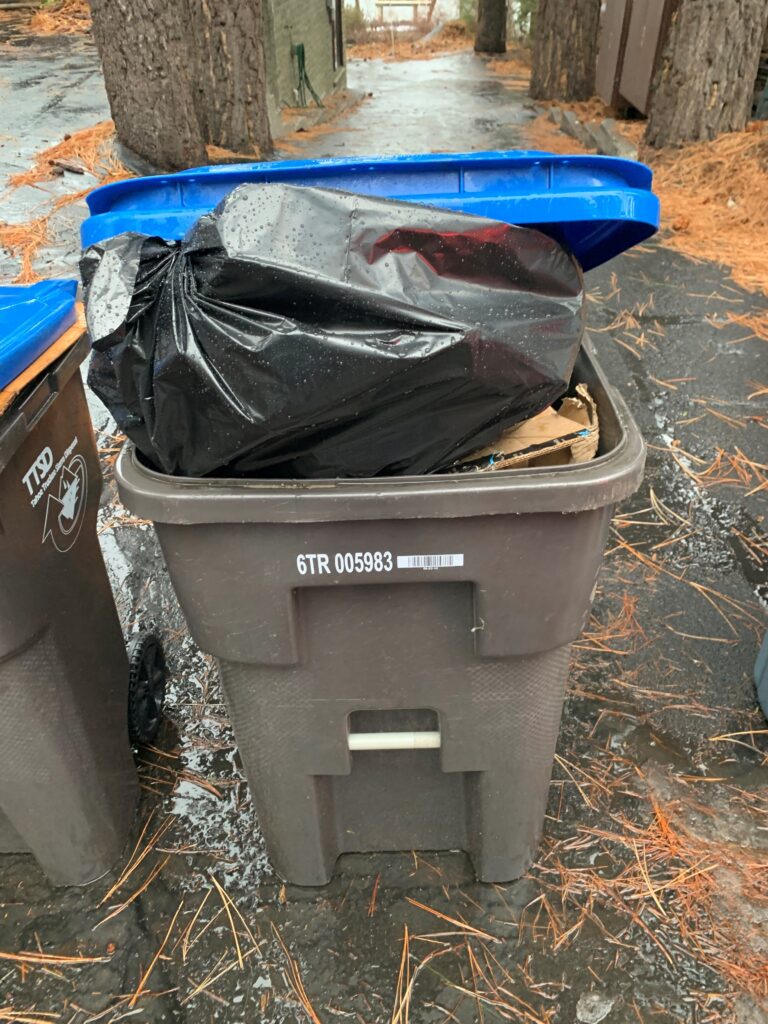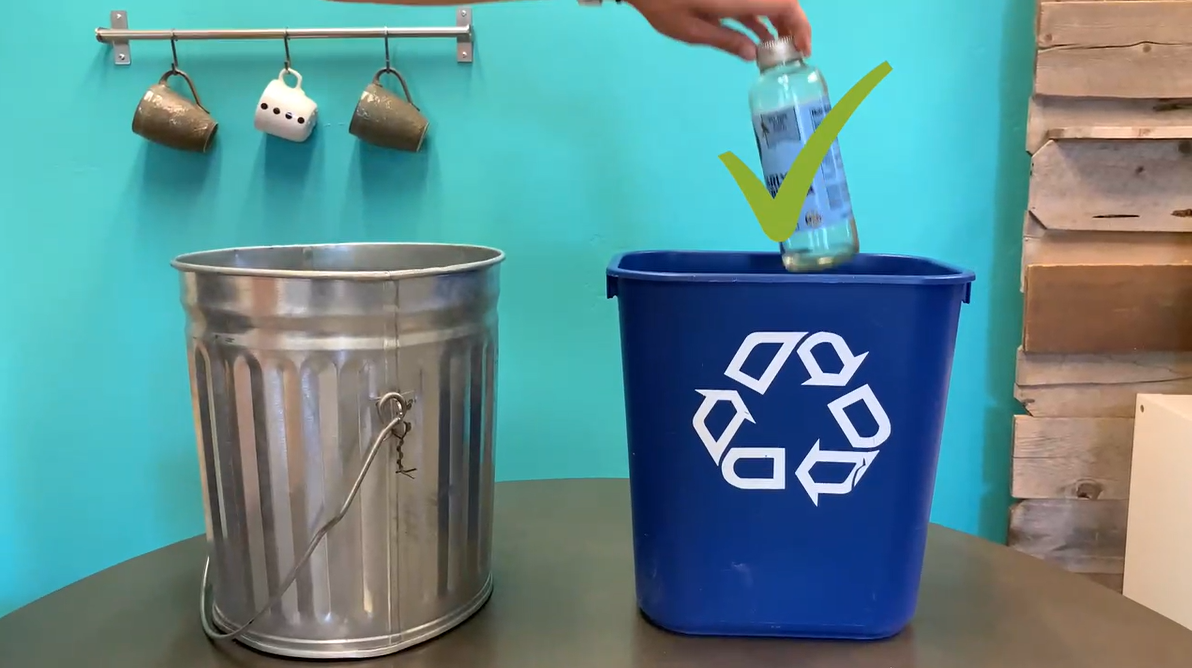While recycling may be done with the best intentions, placing non-recyclable items in your recycle bin can contaminate other items that are eligible to be recycled and may cause them to not wind up getting recycled at all! The Town of Truckee recently conducted its annual check of recycle bins for contamination and found that there were several common contaminants found in the bins that make it difficult for crews to sort through recycling at the ERL Materials Recovery Facility and jeopardize the viability of potentially recyclable materials.
Some of the most common contaminants that were found in Truckee recycle containers were plastic bags and plastic film, bagged recyclables, food-soiled containers, and aseptic paper cartons and cups. All of these items should ALWAYS be placed in the trash. Here are the reasons these items can’t be recycled:
Don’t: Plastic Bags/Plastic Film

Plastic film is a flimsy, stretchy material that comes in many forms. It is often used for plastic grocery bags, bread bags, film wrap for packaging, etc. This type of plastic is rejected at most recycling facilities, as it is difficult to recycle and has a tendency to get wrapped inside heavy machinery. This negatively affects the efficiency of recycling sorting facilities, can cause damage to expensive heavy equipment, and even jeopardize the safety of crews.
Don’t: Bags in Bins

All recycling put in your recycle bin should be loose and unbagged. The reason is that film plastic bags themselves aren’t recyclable, and sorting crews at our local sorting facility need to sort through the recyclable items individually. Blue bags can be used for extra recycling (placed next to your trash can) or if you don’t have a recycle cart. But if you are using a recycle cart, place your materials loose, directly into the cart.
Don’t: Dirty Food Containers

Dirty food containers are a very common contaminant in recycling bins. These containers are the ones highest at risk of contaminating other recyclable items too. If an item is dirty or covered in food/mold, it will not be recycled and instead sent to the landfill. These items can also contaminate other clean materials in the mixed recycling stream. While you don’t need to send things through the dishwasher to ensure they’re squeaky clean, a quick rinse is a good way to ensure your item will be recycled and not wind up in the landfill.
Don’t: Paper Cartons & Cups
Paper cartons and containers carrying liquid are typically made with a mix of multiple materials such as plastic, paperboard and aluminum. Examples include juice boxes, milk cartons, soup broth cartons, and hot paper cups. These containers have some environmental upsides like the fact they use less energy to produce, are lighter reducing energy required to ship them, and they don’t need to be refrigerated until after opening. However, because these containers are made of so many different materials glued together, many recycling facilities including our own in Truckee can’t process them, and they are sent to landfill.
Here’s what CAN be recycled:
- Plastics #1 & 2
- Paper
- Glass
- Aluminum
- Cardboard
Clean and empty materials only. That means no liquid or food residue in your containers. Place materials directly into your cart – no plastic bags in your cart!

Hopefully these quick tips will help you avoid placing some common contaminants in your recycle bin! If you have more questions about if/how you can recycle a specific item you can visit our Recycling Webpage to learn more. Happy recycling!
